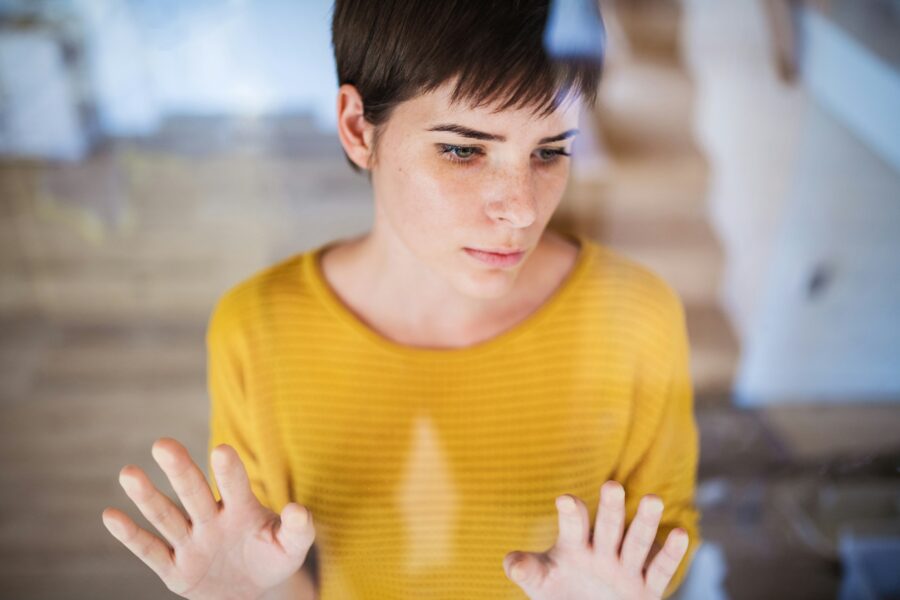
You don’t have to chant mantras or sit on a mountaintop to be spiritual. In fact, some of the most grounded, spiritual people you’ll ever meet wouldn’t even describe themselves that way. Still, it shows—in how they think, how they treat other people, and how they move through everyday life. These aren’t big declarations or flashy rituals. They’re quiet, consistent habits that reveal a deeper connection to something beyond the surface. If a few of these sound familiar, there’s a good chance you’re more spiritually tuned in than you realise.
You think before you speak.
When something annoys or upsets you, your first instinct isn’t to lash out—it’s to take a second. Maybe you breathe, maybe you observe your own reaction, but either way, you’ve built some space between stimulus and response. That kind of pause isn’t just emotional intelligence; it often comes from a deeper awareness that your reactions don’t have to run the show.
It’s a small, powerful signal that you’re operating with mindfulness. Rather than getting caught in automatic responses, you’re living with intention, and that’s a major sign of spiritual growth. You’re showing up for yourself and other people with more consciousness, even in tense or frustrating moments.
You’re drawn to nature when things feel off.
Whether it’s a full-on walk in the woods or just five quiet minutes in your garden, nature is where you go to reset. You might not even realise it, but turning to the outdoors for peace is a deeply spiritual impulse. Nature grounds, soothes, and reminds us of our place in something much bigger.
You don’t need a textbook to know there’s something healing about birdsong, trees, or the sea. When you instinctively seek those spaces to calm your nervous system, you’re tuning into a wisdom that’s been around long before therapy apps and stress management techniques. It’s ancient, and you trust it.
You check in with yourself, not just other people.
You’re the type of person who notices when you’re off. Maybe you don’t always have the words for it, but you can feel it in your body, your energy, or your mood. And rather than brushing it aside, you pause to ask yourself what’s going on.
This habit of self-checking isn’t just about managing stress. It’s about being in a relationship with yourself. A spiritual mindset doesn’t ignore discomfort; it gets curious about it. When you ask, “What do I need?” or “Why did that hit so hard?” you’re doing more than problem-solving. You’re listening inwards, which is something not everyone knows how to do.
You notice synchronicities.
Maybe you think of someone, and they text you. Or, you keep seeing the same phrase, number, or message pop up in unrelated places. While other people might write it off as coincidence, you can’t help but feel like there’s a little more to it than that.
Believing in synchronicities doesn’t mean you’re delusional or trying to find meaning in everything. It just means you’re open. You’re aware that life often has a rhythm that goes beyond what’s logical, and you pay attention when things align in strange, comforting ways.
You don’t see people as “good” or “bad.”
Even when someone annoys you, there’s a part of you that wonders what’s behind it. You might still set boundaries or call out bad behaviour, but you understand that people act from their wounds, their fears, or their own lessons. You try not to reduce anyone to their worst moment.
Having the ability to hold complexity, rather than label someone outright, is subtly spiritual. It takes patience and depth to hold space for people without needing them to be perfect. And it shows you’re connected to compassion, not just judgement.
You feel things deeply, even when it’s inconvenient.
You might cry during adverts. You might need a moment alone after a conversation that hit a nerve. You’re not numb to the world around you, and you’re not interested in pretending you are. Emotions move through you, and you let them.
Spirituality isn’t about always being calm, it’s about being real. When you allow yourself to feel grief, joy, awe, or overwhelm without shutting down, you’re staying emotionally present. And that kind of presence is a powerful part of any spiritual life.
You value stillness, even if it’s rare.
You crave quiet moments, even if you don’t always get them. Maybe it’s the first five minutes of the day before everyone wakes up. Maybe it’s sitting in your parked car a little longer than necessary. You know that silence does something for you.
Stillness is where reflection happens. It’s where clarity lives. If you find yourself looking for that space—not to be productive, but just to be—you’re already nurturing a spiritual practice. You’re making room to hear yourself think. Or even better, to stop thinking for a while.
You try to act from kindness, not ego.
Even when it would feel good to be petty or prove a point, you try to come from kindness. You care about how your words land, how your actions ripple, and what kind of energy you’re putting out into the world—not because you’re perfect, but because it matters to you.
That kind of awareness doesn’t come from fear of judgement or people-pleasing. It comes from a place of alignment. You know that how you show up in small moments counts just as much as the big ones. And that’s something spiritual people get instinctively.
You reflect more than you react.
When something big happens, good or bad, you sit with it. You journal, you walk, you talk it through. You try to find the lesson, the meaning, the deeper reason why it hit you the way it did. You don’t rush to make it make sense, but you do pause to reflect.
This habit of reflection is core to any spiritual mindset. You’re not just living reactively; you’re trying to live with intention. You’re open to growth, and you believe there’s something valuable to be found even in the hard parts of life.
You believe there’s more to life than what we can see.
Whether it’s energy, intuition, a sense of purpose, or something you can’t quite put into words. You just feel there’s more going on than meets the eye. You’re not attached to any specific belief system, but you’re open to the idea that we’re all connected in ways we might not fully understand.
Your openness is what keeps you spiritually grounded. You’re not looking for certainty; you’re indulging your curiosity. You don’t need all the answers. You just want to live in a way that feels honest, kind, and connected to something deeper.
You care about your inner world more than your image.
You’re more interested in how something feels than how it looks. You don’t need to impress anyone, and you’re not chasing external validation the way you used to. What matters now is whether something sits right with your values, your gut, and your conscience.
That internal focus is a hallmark of a spiritual mindset. It means you’re not being driven by ego or expectation. You’re being guided by something quieter and more meaningful. You’re more in tune with your true self, and that shows up in how you live, even when no one’s watching.


